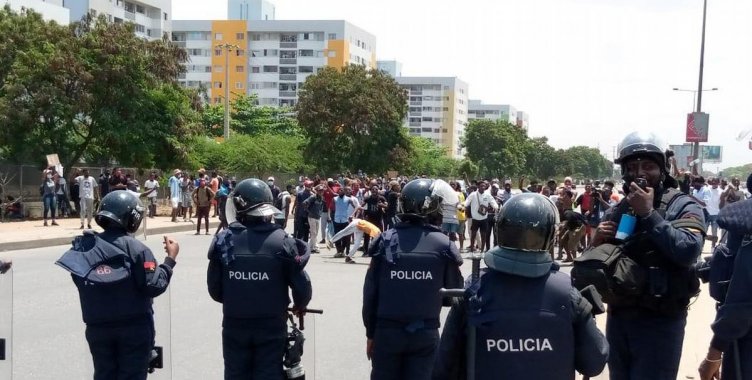According to the lawyer, there are many arrests, but few are reported, and, for those that are, "institutions work to create a smokescreen" so that they are not disclosed.
Zola Bambi, who spoke to Lusa on the sidelines of a press conference promoted by the Observatory for Social Cohesion and Justice and Friends of Angola, said that the majority of detentions are arbitrary or illegal.
Bambi considered that there was a need for a change in the mentality that leads the police to act in this way, stressing that, in the peripheral neighborhoods of the province of Luanda, the country's capital, arrests are recorded daily without complying with legal procedures.
According to the lawyer, the presumption of innocence has not been taken into account, because "once the person detained is already seen as an alleged criminal".
"Even after having elements that demonstrate that this person did not commit [crime], sometimes a process is fabricated to justify the days he was detained," he said.
This fact is recurrent, continued Zola Bambi, calling for a reaction from the institutions.
"We are denouncing, but if there is no internal reaction in State institutions, especially in the National Police, it will be very difficult for us to stop these practices", he stressed, also denouncing alleged cases of torture.
The lawyer stated that, because there is a feeling of impunity, the situation continues, remembering that this practice stood out in the "authorizations" for "arbitrary actions" against activists.
According to Zola Bambi, the police use the same mechanisms that they were instructed to use with "activists, journalists, trade unionists or opposing voices" with citizens, becoming a "practice".
"There are several cases, if we go to a police station we will find several cases of arbitrary arrests (...), the police go to houses without warrants and it has become a practice and that is why we really have to fight to stop it", highlighted.
Zola Bambi considered the human rights situation in general "critical", stressing that there is not only violence, ill-treatment and prisons, but also violations of fundamental rights, such as the lack of "aid for drought victims, the issue of hunger, children on the streets", among others.
In turn, the executive director of Mãos Livres, Guilherme Neves, considered that the level of narrowing of civic space has increased, remembering that, back in 2015, the Government tried to limit the exercise of Non-Governmental Organizations and that it is now returning once again to try to do so with the proposal to change the law that regulates its operation.
"In 2015, in partnership with the Bar Association, an action was brought before the Constitutional Court and it was considered unconstitutional and most of the elements contained in this new proposal were already considered unconstitutional, therefore, the executive's intention is clear , it is necessary to control NGOs", he said.
Guilherme Neves said that the Government did not carry out a risk assessment on the possibility of NGOs opening doors to money laundering, adding that later this year they intend to carry out a joint assessment, on the organizations' initiative.







